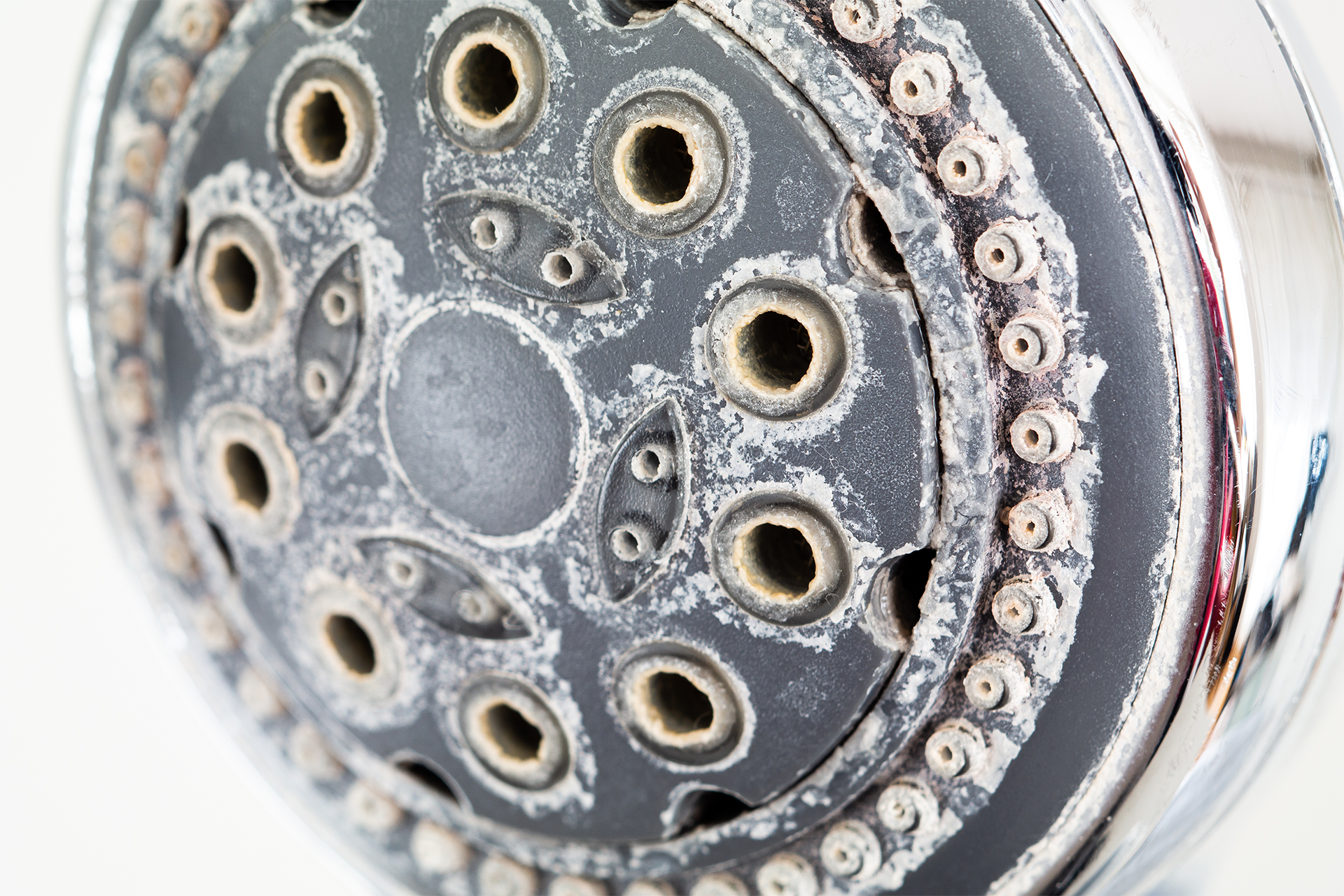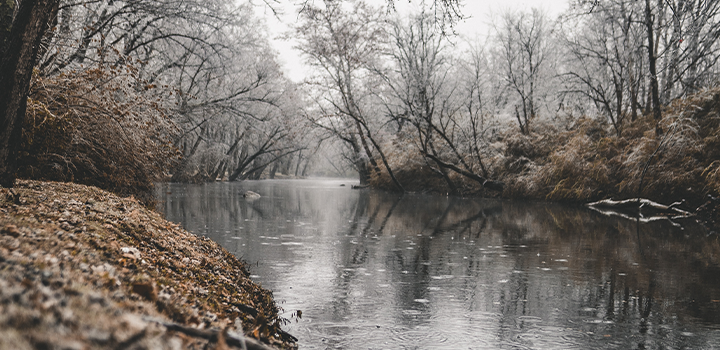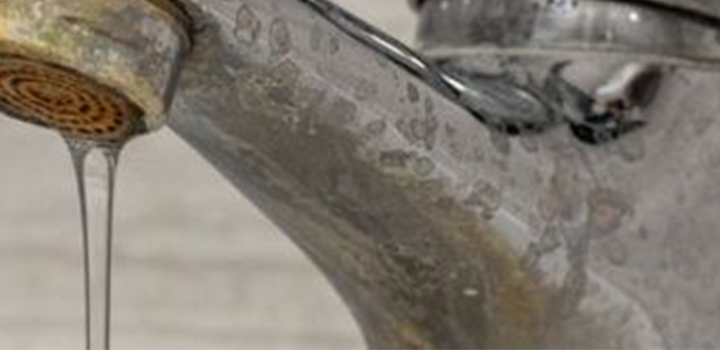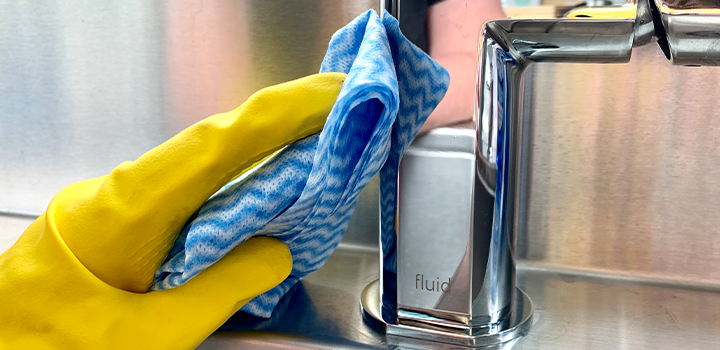- Resources
- Insider Tips
- Hard water stains - take them off and keep them off!
Hard water stains - take them off and keep them off!

Hard water is tough on faucets and fixtures - learn how to prevent damage.
2. What are common issues when you have hard water?
3. Tips and cleaning hacks for hard water.

What is hard water? Water doesn’t start off a ‘hard’. Rainwater is soft, but as it hits the ground and winds its way into our city systems, it is exposed to and picks up minerals from the ground. Water that is high in mineral content such as limestone, chalk, calcium, magnesium carbonates, sulfates etc. is determined to be ‘hard’ water. While hard water is not generally considered to be bad for your overall health, it can be very bad for the health of your appliances and fixtures that touch water. You can generally tell that you have water by scale buildup on fixtures and lack of foam created by soap and water.
The scale buildup - that can look like either powdery white buildup or ‘rust’ like spots in your kitchen sink, bathroom fixtures etc. is generally caused from water sitting on a surface until it evaporates. The water disappears, leaving behind all of those minerals. Over time the minerals build up and become harder and harder to remove. While the cleaning can be very challenging, hard water buildups or deposits, called scale can also cause clogs in your plumbing lines, and can be very hard on hot water tanks, washing machines, dishwashers, and all bathroom and kitchen fixtures.

Common issues from hard water:
- Scale build up on tile, bathtubs, faucets, fixtures and appliances; (anything touching water)
- Your skin doesn’t feel ‘clean’ even after bathing as a film remains, leaving skin feeling dry
- People tend to use more shampoo and soaps as the sudsing is so low, and it often leaves a residue making hair limp and hard to manage
- Water heaters and other water appliances don't last as long as expected
- Dishes and glasses are spotty or have a film that remains, even after washing
- Clothes don’t rinse well and can become grey and damaged after relatively few washes
- Hard water has a distinct taste, affecting how coffee, hot and iced tea etc. taste

Tips and cleaning 'hacks for dealing with "hard" water.
- Regular cleaning is a must! It’s always best to clean weekly, but if you have hard water it is essential. Once scale has built up on a fixture it becomes very difficult to clean and sometimes in more extreme build ups it can cause permanent damage.
- The towel is your friend! If you dry water before it evaporates, you fix the problem at the source! Deposits are left behind from evaporating hard water, so don’t let it sit! Every time you use your kitchen sink, bathroom or kitchen faucet, shower etc. – dry the area completely. This will stop hard water spots in their tracks. It may take a bit more time in the short term, but it will save you huge amounts of time and money in the long run, lessening cleaning time and preventing scale buildup that necessitates replacement of fixtures! Plus, you have the added bonus of always having beautiful, sparkling fixtures in between cleaning.
- Diluted white vinegar helps to remove scale. Use a 50-50 mix of white vinegar and water to regularly clean fixtures to prevent build up. (Important Note - less is more here! Soak the fixture only as long as is absolutely necessary. Vinegar is acidic and over time can affect your finishes - especially more fragile finishes like Matte Black! It is always best to do a patch test in an inconspicuous place before soaking the entire item. Soak in 15 minute intervals, and rinse the fixture thoroughly when finished).
- If faucets and fixtures have a scale build up already, use a cleaner such as CLR, (calcium, lime and rust remover), to remove it. You may have to let the solution sit for a short time on fixtures and really scrub, (with a soft brush so as not to scratch the finish), but with effort you should have success. Again, it is much better to prevent build up than to have to remove later, and as stated above, use all strong cleaners with caution; long exposure may damage the finish).
- White vinegar can be used as a rinsing aid in dishwashers and other appliances, (always check with the manufacturer).
Click here to see the "Homewater101" map of the USA showing hard water. About 85% of US homes have some level of hard water. The situation is less extensive in Canada, but many areas also have extremely hard water. You can always check the hardness of your water with a quick Google search, but honestly most people don’t need to be advised that they have hard water! Many look into installing water softeners, but be very careful to always check the affects that any household system may have as well. (Softeners often use salt. causing some issues of their own for fixtures.). Hard water is simply a reality for the majority of North Americans. Learn some simple preventative maintenance to lessen the affects as much as possible.
The towel is your friend! If you dry water before it evaporates, you fix the problem at the source!

